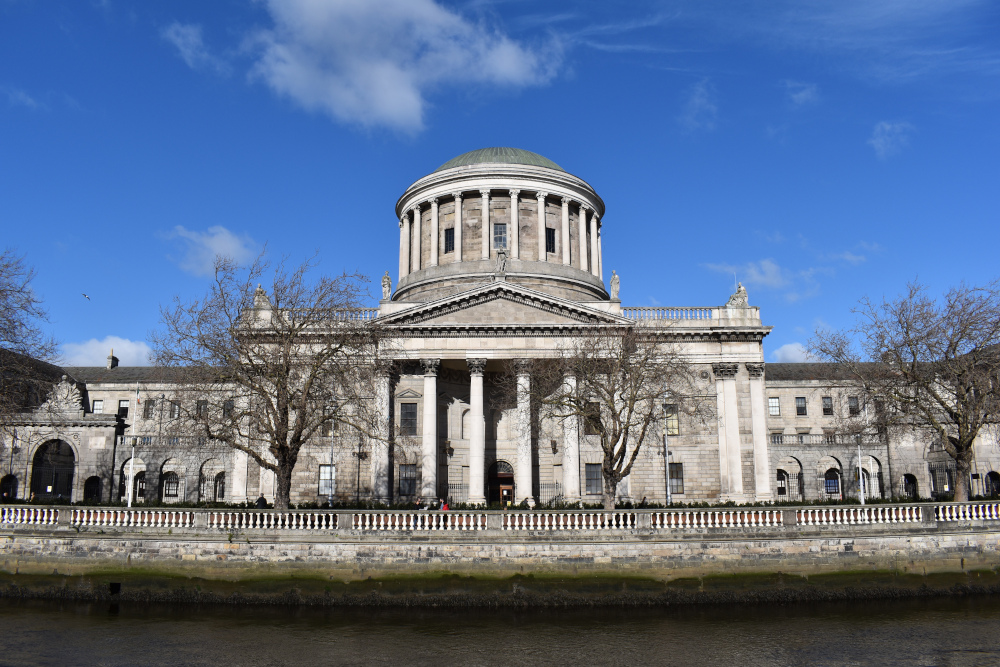Review group majority calls for new, permanent non-jury court

A long-awaited independent review has called for the Special Criminal Court to be replaced with a new, permanent non-jury court — while a dissenting minority has called for it to be scrapped altogether.
Retired Court of Appeal judge Mr Justice Michael Peart was appointed in February 2021 to chair a six-person review group including Dr Alan Greene, Anne-Marie Lawlor SC, Caitlín Ní Fhlaitheartaigh, Professor Donncha O’Connell and Ken O’Leary.
The government today published the majority report by Mr Justice Peart, Ms Lawlor, Ms Ní Fhlaitheartaigh and Mr O’Leary, as well as the minority report by Dr Greene and Professor O’Connell.
There is unanimity among all review group members that the Offences Against the State Acts, introduced as an “emergency” measure more than eight decades ago, should be repealed.
However, the majority report recommends the introduction of new legislation establishing and regulating the operation of a “new non-jury court” operating on a “standing basis”. This, it says, “should be available in principle to try any serious criminal offence provided that the high threshold for the use of the court is satisfied”.
It goes on to make a number of other recommendations about how that court should differ from the existing Special Criminal Court, stating that “the establishment of a new non-jury court is only acceptable if these other recommendations relating to the operation of the court are also adopted in full”.
In particular, the majority recommends abolishing the category of ‘scheduled offences’ which are “tried by default in a non-jury court”. It proposes instead that the director of public prosecutions should decide which cases should be tried without a jury on a case-by-case basis, and that a judge be appointed to review those decisions.
The majority accepts the continued use of Garda ‘belief evidence’ in trials before a non-jury court, but recommends that the legislation “should make clear that in a case where belief evidence is relied on by the prosecution, the accused may not be convicted solely on the basis of that evidence”.
In contrast, the minority argues that establishing a permanent non-jury court would go “well beyond the original intent of the Constitution” and warns of the risk of “function creep… that could, foreseeably, lead to trials that would now be dealt with by juries being tried by a non-jury court on the basis of, for example, evidential complexity or litigation efficiency”.
It goes on to acknowledge that the right to a jury trial is not absolute and there are some “very limited circumstances” in which a juryless trial should take place, but says this does not necessarily mean a non-jury court should be established on a permanent or “standing” basis.
The minority argues that these juryless trials should only take place where there is “evidence of a real and present danger of jury intimidation” and other measures — including the use of remote juries, anonymised jury lists and the transfer of jury trial to a different location — have been exhausted.
It also rejects the majority’s suggestion that the DPP could decide which trials take place without a jury, suggesting instead that any such decision “should be made by a judge on an ex parte or inter partes basis as a preliminary matter”, especially to avoid “casual or routine recourse to non-jury trial”.
On belief evidence, the minority argues that there should be no statutory provision for it at all, describing the present Irish law as a “stark outlier relative to neighbouring and comparative jurisdictions”.
Both the majority and minority reports noted that there is little data available on juror intimidation in Ireland. The group was provided with prosecution statistics showing there were 343 cases brought under section 41 of the Criminal Justice Act 1999 since 2011, but these made no distinction between witness and juror intimidation.
Following the publication of the reports, justice minister Helen McEntee confirmed that the government would ask the Oireachtas to renew the Offences Against the State Acts for a further year next week.
She said: “Given how well these pillars of our criminal justice system have worked over many decades, any proposals for reform must be thoroughly considered and treated with the utmost care.
“That is why I am very thankful to the chairperson of the review group, Mr Justice Michael Peart, for leading this important work and I very much appreciate the dedicated effort and input of all the members.
“There is much to digest and reflect on in the majority’s package of recommendations and also in the perspective of the minority.
“As I have said, the Offences Against the State Acts have stood the test of time for 80 years and it is important that we take the time to consider carefully how best to proceed.
“With this in mind I have asked my officials to consult with other relevant Departments and the Garda Commissioner, the Office of the DPP and the Courts Service to inform the preparation of a substantive response for consideration by government in due course.
“I have also asked them to consult with the Irish Human Rights and Equality Commission to ensure that a broad human rights perspective is captured.”
The minister added: “In parallel with the consultative process I will be discussing with my officials the work already in train in my Department in relation to juries to identify any additional measures — short of non-jury trials — which might in certain cases mitigate the risk of intimidation or other interference.
“I also intend, having regard to the concern of the majority and the minority in relation to the limited data available in respect of the operation of the Special Criminal Court and the extent of jury and witness intimidation, to engage with An Garda Síochána, the DPP and the Courts Service to identify what improvements could be made in the collation and publication of data relating to these matters to support independent scrutiny and promote public confidence.”










